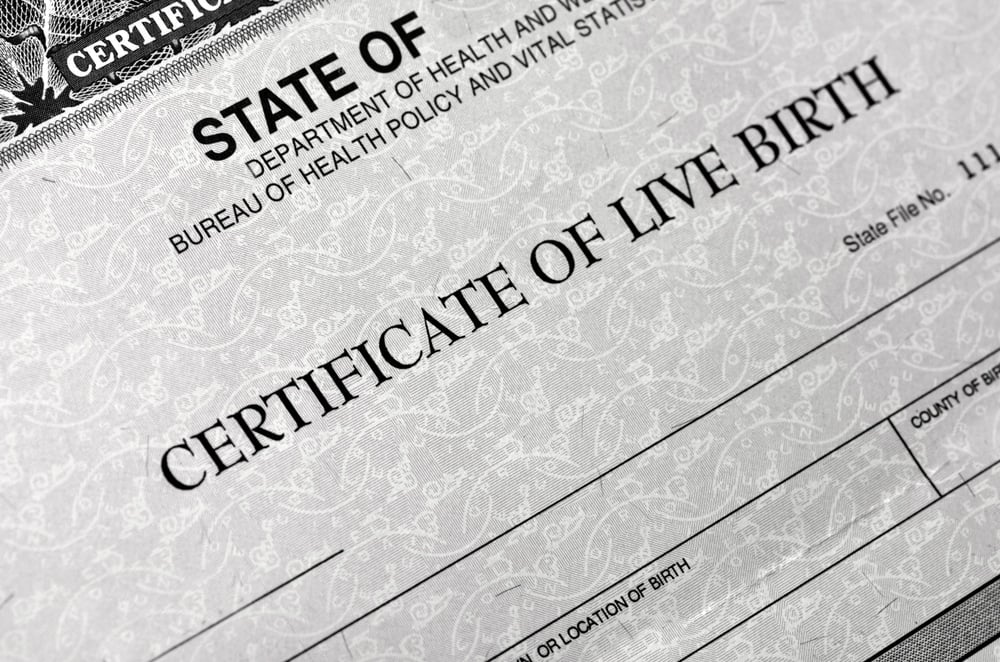How to Find Out if Someone Died in Your House: Your Full Guide
Cindy Ellis - November 28, 2022

The history of your home is important to be aware of, no matter whether your family has lived in the same space for decades or you are considering purchasing a new home. And while it might be a morbid thing to wonder about, knowing if someone died in your house can be essential knowledge.
After all, some individuals might not want to live in a space where something gruesome happened previously, and some might not want to be in a home that has a history of deaths. Our article gives you information on why it’s helpful to track down your home’s history in addition to the best methods for finding out if someone died in your house.
Why Track Down Your Home’s History?
Staying informed about your home’s history, including being aware of items like deaths in your home, can help you make informed decisions about selling and purchasing. There is an unfortunate stigma surrounding homes that have had deaths in them, and while some people may not mind living in these homes, others will want to avoid purchasing or living in spaces with that kind of history.
Tracking down your home’s history can help you decide whether or not to purchase a house and give you vital information that might be requested of you if you are attempting to sell your property.
Plus, while you research your home, you might find out other fun facts along the way, such as building facts, historical occurrences, or information behind the quirks that make your home a unique property.
Methods for Finding Out if Someone Died in Your House
There are several methods that can help you find out if someone died in your house. If one of these methods doesn’t work for you, don’t get discouraged; instead, simply try another one. You never know which method will give you the exact information you are looking for.
Speak With a Real Estate Agent
If you have recently purchased your home or you are looking at homes to purchase, one of the most straightforward ways to discover if someone died in that property is to ask your real estate agent. While some states have laws that don’t require disclosure of this information, most real estate agents are required to be honest if directly asked about deaths on the property.
Reaching out to a real estate agent is also a good way to be pointed in the right direction regarding information about deaths in your house even if they don’t have an answer for you.
Speak With Former Owners
Reaching out to the former owners of a property can be hit or miss, as these individuals might be selling their home because of a death in the house, they might not want to speak about the history of their property, or they simply might not know. However, the former owners may be willing to offer information on the home’s history or point you in the direction of historical records that can help you find this information.
Make sure that you reach out to the former owners respectfully and be prepared to take no for an answer. Continue your search elsewhere if the former owners don’t wish to speak with you.
Consult the Seller Disclosure Statement
In most states and according to certain federal laws, sellers of a property are required to disclose certain information to potential buyers. This information will likely include information about the condition of the property and its history,ies such as deaths, defects, or incidents such as fires and water leaks. Depending on local laws, sellers may or may not be required to include exact dates of deaths or a record of death incidents on a property.
However, gaps of information in the seller disclosure statement, or incidents such as fires and other home-related disasters, may warrant a deeper search into the history of your home to ensure deaths didn’t occur during those times.
Check Public Records
Public records are a great way to discover the history of your home, including deaths that may have occurred on the property, especially if your home is older. Public property records can help you trace the history of your home while census records may notate previous owners, marriages, and deaths that occurred around your property.
You can find these records by accessing library sources, making requests through town halls or other local record-keeping offices, or by searching online record databases for your county.
Speak With Neighbors
Occasionally, the neighbors surrounding a home you have lived in or are interested in purchasing will have information on incidents that happened in the home, including deaths. Before purchasing a house or while conducting research on your home, reach out to neighbors and ask if they have any important information about the history of your property.
Even if they don’t have information about deaths that have occurred, they might be able to tell you about incidents that were newsworthy, leading you in the right research direction. You might also be able to make some fast friends with your neighbors while you conduct this important research.
Run Internet Searches
Simple internet searches or searches of news outlets can help you discover important incidents that may have occurred on your property and pull up news reports that discuss deaths on your property. Most of the time, if deaths occurred in a more gruesome or news–worthy way (i.e., not natural causes), there will likely be a news report about it somewhere. You can review the report to gain a better idea of what happened or how someone died in your house.
Internet searches with your address may also turn up obituaries or public record information about deaths that occurred on the property, important historical facts, or census records, making them a great place to start your research.
Perform an Address Lookup
If you’re considering purchasing a property but you want to know more about the previous owners and other important information, such as deaths on the property, you can utilize a reverse address search. Simply enter the address you are researching into the address lookup tool, run the search, and review the information that is pulled up about the property.
From here, you can double-check the previous owner’s names, search for obituaries, and conduct further research into the home using public records.
You can also perform an address search on a property you already own as you get started researching, as knowing more information about former owners and property history can point you in the right research direction.
Do Real Estate Agents Have to Disclose if Someone Died in a Home?
Contrary to popular belief, a lot of the time, real estate agents don’t have to voluntarily disclose the information that someone has died in a home or on the property around a home. Laws on this disclosure change based on state, but for the most part, deaths that occur because of natural causes in a home aren’t typically required to be disclosed, unless the buyer asks the real estate agent directly. If asked, the real estate agent must answer honestly, as it could be against the law not to.
It’s also important to note that many states have different laws when it comes to murders or violent crimes in a home that resulted in deaths. These are more than likely required to be disclosed voluntarily, without the buyer asking first.
More information about death disclosures can be found here, but you should also be looking up the specific laws in your state to see what real estate agents and the sellers of a home are required to disclose about the property.
Is Property Value Affected by a Death in a Home?
Unfortunately, due to stigmas surrounding homes that have had deaths in them, whether it be a belief of unluckiness, supernatural activities, or simply bad vibes, homes where deaths occurred might deal with a lowered property value in certain areas.
Keep in mind that deaths that have occurred from natural causes aren’t as likely to affect property values as gruesome or publicized incidents that resulted in deaths at some point during the home’s history. Further information on home values as it relates to deaths can be found here.
Understanding Your Property’s History
Figuring out your property’s history can be an overwhelming thing at first, especially if you are searching for evidence of a death occurring on your property or a property you are interested in purchasing. However, there are many avenues for you to discover this information, including speaking to your real estate agent, performing public record searches, and using the internet to locate this vital information.
As long as you take your time to proceed through these research steps, you should be able to figure out whether or not a death occurred in your home in no time, allowing you to make properly informed decisions about your property.






